This website uses cookies so that we can provide you with the best user experience possible. Cookie information is stored in your browser and performs functions such as recognizing you when you return to our website and helping our team to understand which sections of the website you find most interesting and useful.
In celebration of Women’s History Month, we’re shining a spotlight on the remarkable women leaders at Westat. Their diverse backgrounds, experiences, and insights have helped shape our company and inspire the next generation. We asked these accomplished executives to share their personal journeys, role models, and advice for those early in their careers. Read on for a window into their paths to success.
Renee Slobasky, Chair,
Board of Directors
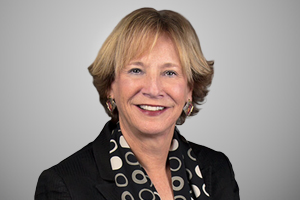
Why did you choose your career? My graduate studies were in Sociology. When I considered my career options with a degree in Sociology, I thought doing research sounded interesting. Out of graduate school, I worked for another research company before coming to Westat. Fifty years later, I guess I made the right choice!
Tell us about a woman you looked up to and why. Ruth Bader Ginsburg was a woman that I greatly admired. She was a pioneer for women’s rights. She worked at a time and in a profession that was not welcoming to women, yet she accomplished so much.
What advice do you wish someone had given you early in your career? Women today have a lot of choices and opportunities. Believe in yourself and your abilities, and don’t be limited by what others think.
Patricia Shifflett, Board Member; Senior Vice President & Sector Lead, Health
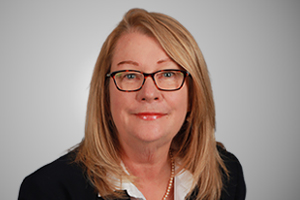
Why did you choose your career? Coming from a long line of nurses, it was no surprise that I chose to become one myself. However, I wanted to make a broader impact on public health, so I transitioned into public health nursing fairly early in my career.
Tell us about a woman you looked up to and why. I looked up to the women in my family – my mother and grandmothers. They successfully juggled careers, family, and philanthropy long before it was common for women to be in the workforce. They were great role models for living a purposeful life.
What advice do you wish someone had given you early in your career? It’s challenging to juggle everything, so it’s important not to be too hard on ourselves.
Jeri M. Mulrow, Vice President & Sector Lead, Data Solutions; Acting Director, Statistics & Data Science
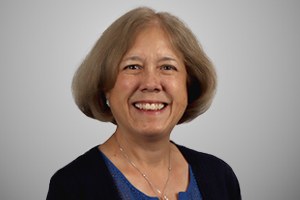
Why did you choose your career? I feel lucky to have chosen a career in statistics. As a child, I loved math – it was my favorite subject. I started college as an engineering major but quickly shifted to being a math major. In my junior year, my academic advisor advised me to take more applied math courses, such as computer science, accounting, or statistics. I fell in love with statistics after the second course. I realized that with statistics, I could play in everyone’s backyard. I could apply statistics to help solve any problem involving data. That has been true throughout my whole career.
Tell us about a woman you looked up to and why. There have been and continue to be many women leaders in government statistics. That is one of the main reasons why I joined the government early in my career. To name a few: Barbara Bailar at the U.S. Census Bureau, Janet Norwood at the Bureau of Labor Statistics, Joan Rosenblatt at the National Institute for Science and Technology, Cynthia Clark at the National Agriculture Statistics Service, and Katherine Walman, Chief Statistician of the United States at the Office of Management and Budget. Initially, these women served as role models for me. Eventually, I was fortunate to meet many of them.
What advice do you wish someone had given you early in your career? Of course, there are so many lessons I have learned over my career. I used to hear, “you need to learn to say no” because I always wanted to be involved in things. But it’s a balance. I needed to learn that once I got too busy, I couldn’t do a good job at anything, and I needed to cut back. Although I was given the advice, I needed to learn it for myself. So maybe my advice is: try things and don’t be afraid to learn from your mistakes.
Janet Rosenbaum, Vice President & Chief Business Development & Marketing Officer
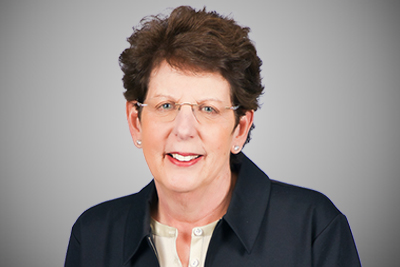
Why did you choose your career? I did not choose my career; I fell into it! My education and early career were in criminal justice policy research and data analysis. Much of this work was performed under U.S. Department of Justice contracts and required writing proposals to win new work and keep it. Over time, I discovered that I really enjoyed capture and proposal development, and eventually, my career transformed into building and leading business development organizations—all for mission-driven research firms like Westat.
Tell us about a woman you looked up to and why. I have been fortunate to have had many women to look up to and guide my professional growth. But if I have to choose one woman, it would be my mom. She was a trailblazer for her time, being the first and only child of four to go to college and get a Master’s degree. Her career as a teacher was lauded for being progressive. She was a visionary in her teaching style, and her work ethic was admirable. I am grateful I had such a wonderful role model to learn from.
What advice do you wish someone had given you early in your career? Be open to taking on new responsibilities, learning new skills, and challenging yourself. It is easy to stay in your comfort zone and continue to do the same tasks and stay in the same job for years. I was heading that way, but after being exposed to business development and marketing, I found a new career that has given me great opportunities and incredible job satisfaction.
Suzanne Osborn, Vice President & Chief Human Resources Officer
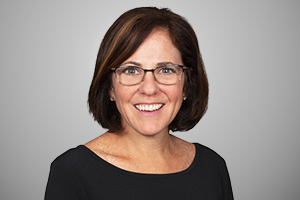
Why did you choose your career? TheHuman Resources field gave me an opportunity to work closely with people, contribute to organizational growth, foster a positive work environment, and make a meaningful impact on individuals’ professional lives. HR offers a diverse range of roles, and I have worked across many disciplines, including talent management, HRIS, employee relations, organizational development, and compensation and benefits.
Tell us about a woman you looked up to and why. I’ve been fortunate to have many mentors throughout my career who helped shape the way I work. However, the more I considered this question, the more my thoughts turned to my mother. Growing up, I was one of the few kids in my neighborhood whose mother worked outside the home. I was very proud of that and looked up to her. I learned my work ethic from her, and most importantly, learned how to balance work and family. She continues to inspire me.
What advice do you wish someone had given you early in your career? Never bring a problem to your manager without a recommended solution. Learn the business! As an HR professional, it is critical to learn and understand the work of your organization to add to your credibility as a true partner. Understanding the business is crucial for HR staff to be able to support employees, managers, and the company.
Terry Moore, Vice President, Innovation & Quality
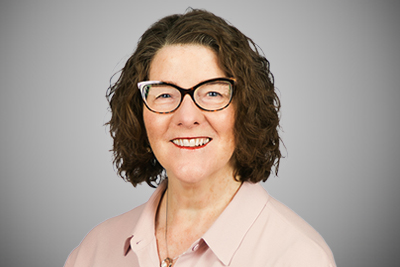
Why did you choose your career? I grew up with liberal activist parents where dinner conversations revolved around various politicians and political appointees and their contributions (or lack thereof!). At a young age, I somehow knew that I wanted to be a policymaker for good, and I had a strong interest in improving health care. But I didn’t want to be a bureaucrat with no direct experience in health care. So, I received a nursing degree and worked in hospital nursing prior to obtaining my master’s in public health. From there, I worked for a short time in federal government and then started my health services research career. In this way, I’ve been able to influence domestic health policy in both big and small ways.
Tell us about a woman you looked up to and why. I’ve always admired Eleanor Roosevelt, in particular for her instrumental role in the U.N.’s adoption of the Universal Declaration of Human Rights. Despite being a woman with the corresponding early and mid-20th century constraints, she was able to successfully influence policy and serve as a strong advocate for civil rights.
What advice do you wish someone had given you early in your career? Never be afraid to advocate for yourself. You alone understand the enormous contributions you can make if only given the opportunity, so put yourself out there for new opportunities and consistently demonstrate that you will deliver!
-
Perspective
Westat Work Shines at 2024 APHSA EMWB ConferenceSeptember 2024
Westat human services experts recently presented at the American Public Human Services Association (APHSA)’s Economic Mobility and Well-Being (EMWB) Conference in Portland, Oregon. At the…
-
Perspective
Westat Tools Help Protect Child PassengersSeptember 2024
Vehicle crashes are a major cause of injuries and fatalities among children, a problem safety advocates in the U.S. acknowledge and work to minimize by…
-
Perspective
International Overdose Awareness Day: August 31, 2024August 2024
Overdose continues to impact the lives of so many around the world. The theme of the 2024 International Overdose Awareness Day, August 31, 2024, is…

